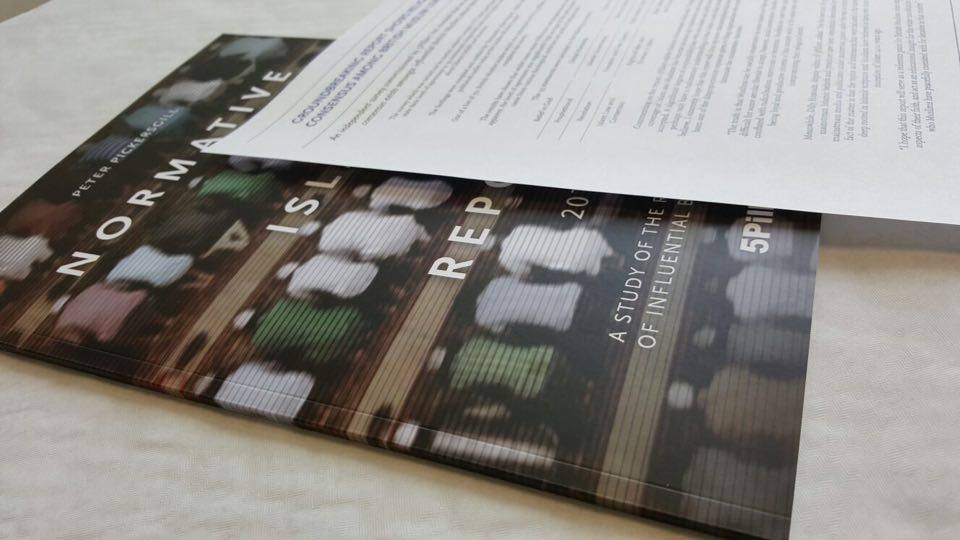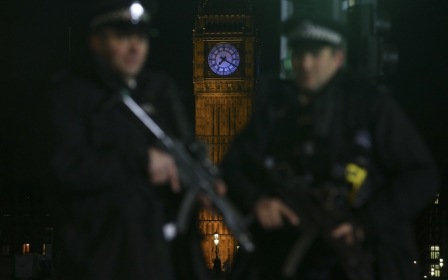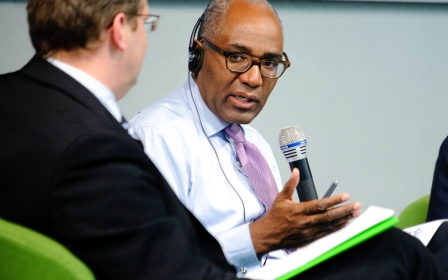'Normative Islam' has always existed and will continue to do so

Islam is the second largest religion in Britain with more than three million adherents, and within this expanding population, much diversity exists in terms of ethnicity, race and political leaning. Unsurprisingly, with such diversity come many challenges in the way Islam is understood by the wider non-Muslim public.
The War on Terror saga and its implications at home has led to an ongoing debate about the need for a “British Islam”. For the best part of 15 years, a growing culture of anti-Muslim propaganda peddled by the mainstream media has played a key role in the rise of Islamophobia in coordination with successive anti-terror measures.
Here in the UK, an array of Islamic beliefs and practices are consistently demonised and have become synonymous with the dominant counter-terrorism narrative. Unfortunately, this has resulted in the emergence of labels – politically loaded and highly problematic – that are used unashamedly to categorise Muslims. Labels such as "moderates"; "liberals"; "reformists"; "conservatives"; "extremists" and "Islamists" are commonly used when distinguishing “good” and “bad” Muslims. As is the case with such divisive labels, the ugly face of the “divide and rule” strategy has resurfaced within the Muslim community, as well as a growing feeling of distrust of a Muslim “fifth column” fuelled by neocons in the heart of the British establishment.
In response to these testing times, 5Pillars commissioned research in an attempt to ascertain what mainstream Muslim scholars, academics and professionals belonging to a variety of theological, political and sectarian backgrounds regarded as the basic tenets of their faith.
The main objective of the research entitled the "Normative Islam Report" is to provide a reference point for the media and policymakers when commenting on Islam and Muslims. In addition to this, 5Pillars hoped that the report would allow Muslims to confidently articulate aspects of their religion which are currently under the spotlight, as well as educating the wider British public in understanding what mainstream Islam is.
5Pillars were confident that while British Muslims are not a homogeneous group with a single designated figurehead, the many influential leaders from among them would demonstrate a pattern of religious consensus in the 12 categories of Islamic beliefs and practices we selected for a survey.
Admittedly, like most if not all research of this nature, there were some methodological weaknesses. The lack of qualitative substance in the 95 survey statements 5Pillars formulated restricted the dimension in which the participants' religious opinions could have been elaborated upon with contextualisation of socio-political realities. Another methodological constraint was that 5Pillars had assumed what mainstream Islamic beliefs and practices were and we used this to engage the participants.
Normative Islam Report: Key findings
In August 2015, 5Pillars submitted a list of 352 influential British Muslims to market research company Pickersgill Consultancy & Planning (PCP) to take part in a survey. The survey consisted of 95 statements which 5Pillars had put together pertaining to Islamic beliefs and practices categorised under 12 topic headings. From the 352 influential British Muslims, 150 completed the survey (43 percent response rate).
The average level of agreement with the great majority of the 95 statements about mainstream Islamic beliefs was “extremely high,” according to Peter Pickersgill, the author of the report. On average across all 95 statements, 86 percent “strongly agreed” and a further 9 percent “agreed,” with only 1 percent “disagreed” or “strongly disagreed”.
Statements under the heading “Belief in God”; “Revelation”; “Global Humanity” and “Prophethood” attracted the highest level of agreement. On average, at least 90 percent of respondents “strongly agreed” with the statements under these headings.
Lowest levels of agreement, though still “extremely high,” were recorded for the statements under the heading “Citizenship” - “Islamic Law and Consensus” and “Jihad, Extremism and Terrorism,” with an average of 81 percent or fewer were in strong agreement with these statements.
The following 11 statements attracted 95 percent or higher levels of strong agreement:
- “God is the sole creator, uniquely One and has no partners” (99% strong agreement);
- “God is the only One worthy of worship and all acts of worship should only be directed to Him alone” (98%);
- “The Prophet Muhammad is the last and final prophet and messenger of God” (97%);
- “The Quran is the direct and unchanged revelation and word of God, sent down for the whole of humanity” (97%);
- “The Prophet Muhammad is a mercy to all of humanity” (97%);
- “Forced marriages are forbidden in Islam” (97%);
- “Islam is the final true religion God has revealed to mankind” (96%);
- “Islam does not discriminate or differentiate between people based on race, nationality or the colour of their skin” (96%);
- “Muslims have a religious duty to be compassionate, just and ethical to all living beings” (95%);
- "There is no compulsion in religion. No one can be forced to become a Muslim” (95%);
- “God does not take the form of His creation” (95%).
The 11 statements attracting the lowest levels of strong agreement were:
- “Jihad, as is mandated in the Quran, is used to maintain or restore order, peace and security or to remove oppression and injustice” (76%);
- “Islam obligates people to obey and follow their leadership and their community as long as it does not conflict with Islamic morals, principles and values” (76%);
- “Authentic prophetic practices and teachings (known as Sunnah) are revelation from God and are infallible” (75%);
- “The niqab is a legitimate piece of Islamic clothing. Women should have the right to choose to wear it or not, without harassment, bans or fear of prejudice against them” (75%);
- “Nationalism is seen in the same manner as racism. It is not right to unfairly give advantage to others based on their nationality or race” (74%);
- “The affairs of the Muslims are considered as one united affair, irrespective of geographical distance or difference between them” (71%);
- “The true Caliphate (or any other Islamic equivalent) is considered the ideal Islamic way of governance for all people” (69%);
- “Consensus of the companions of the Prophet Mohammed forms definitive evidence” (67%);
- “The true Caliphate (or any other Islamic equivalent) is not a theocratic state” (61%);
- “Opposing established consensus of the companions of the Prophet is impermissible” (60%);
- “The segregation of men and women in religious and closed public settings is recommended for the best interest of society and acts as a safeguarding mechanism for the preservation of virtue” (58%).
Most of the statements attracting the lowest levels of strong agreement also tended to be those for which disagreement was highest. However, no more than 7 percent of the sample expressed disagreement (whether strong or otherwise) even with these statements.
The two statements attracting 7 percent disagreement were: “The segregation of men and women in religious and closed public settings is recommended for the best interest of society and acts as a safeguarding mechanism for the preservation of virtue” and “Opposing established consensus of the companions of the Prophet is impermissible.” No more than 3 percent of the sample “strongly disagreed” with any of the statements.
The defining pattern of the Normative Islam Report’s findings demonstrates that an overwhelming degree of consensus exists among the 150 influential British Muslims that completed the survey. And I would argue, that the participants merely agreed on what had already been agreed upon by early Muslims, and inherited by successive generations throughout Islamic history.
- Dilly Hussain is the deputy editor of British Muslim news site 5Pillars. He also writes for the Huffington Post, Al Jazeera English, and contributes to the Foreign Policy Journal and Ceasefire Magazine. He regularly appears on Islam Channel, Russia Today, and BBC TV and radio discussing Middle East and North African politics, British foreign policy, Islamophobia and the war on terror. Follow him on Twitter @dillyhussain88
The views expressed in this article belong to the author and do not necessarily reflect the editorial policy of Middle East Eye.
Photo: A copy of the 'Normative Islam' report during its launch event in London on 17 February, 2015 (5Pillars).
New MEE newsletter: Jerusalem Dispatch
Sign up to get the latest insights and analysis on Israel-Palestine, alongside Turkey Unpacked and other MEE newsletters
Middle East Eye delivers independent and unrivalled coverage and analysis of the Middle East, North Africa and beyond. To learn more about republishing this content and the associated fees, please fill out this form. More about MEE can be found here.





